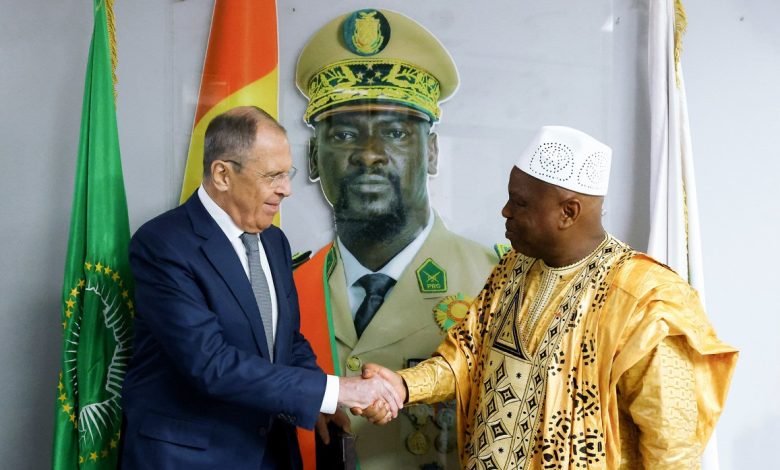The Key Points from Lavrov’s African Tour

RT Agency
The Russian foreign minister has toured three Sahel states and the Congo in the past three days, marking his seventh visit to the continent since 2022.
Russian Foreign Minister Sergey Lavrov has concluded his latest tour of Africa, visiting four countries in two regions of a continent where Western governments have expressed concern about their declining influence in recent years.
Lavrov’s trip was aimed at assessing the growth in relations between the countries he visited and Moscow, as well as engaging in fresh negotiations he described as “mutually beneficial.”
Last summer, at the second Russia-Africa summit in St. Petersburg, Moscow pledged to strengthen ties with African countries and signed a number of agreements, including on defense cooperation, food security, education, and research.
During his meetings with officials on his tour, Lavrov reiterated the Russian government’s commitment to fulfilling these promises, according to statements released by the Foreign Ministry.
The Russian foreign minister arrived in Guinea early on Monday, marking his first visit to the West African nation since 2013.
He was welcomed to the capital, Conakry, by transitional president Mamadi Doumbouya, who has ruled the country since taking power in a coup in 2021. The Guinean leader has denounced attempts by Western powers such as the US and France to intervene in Africa’s political challenges as racist and condescending.
Lavrov and his Guinean counterpart, Morissada Kouyate, discussed a variety of issues and agreed for the two countries to collaborate on projects involving geological research, the development of mineral deposits, and health, according to Moscow’s Foreign Ministry.
Lavrov arrived in the Republic of the Congo, with talks focused on defense cooperation and ending the Ukraine conflict.
The following day, during a press conference in Oyo, a city about 400km north of Brazzaville, Lavrov announced that Russia and the Congo will continue their intensive military and military-technical collaboration in the interest of “Congo’s defense capabilities.”
The Congo’s arsenal includes Soviet- and Russian-made weapons such as armored vehicles, rocket artillery, and helicopters. In May 2019, the Russian and Congolese defense ministries signed a contract to send Russian military specialists to the Congo to train and assist the Congolese army in the operation, maintenance, and repair of previously supplied military equipment and special assets.
Lavrov last visited the Central African state in July 2022, when Moscow and Brazzaville explored expanding collaboration in the sectors of energy and mineral resources, along with infrastructure development.
On Tuesday, the top Russian diplomat and his Congolese counterpart, Jean-Claude Gakosso, called for a peace plan for the Ukraine conflict that would include talks between the two main parties involved.
“It seems to me that those who send arms to Ukraine are not advocates of peace. Quite the opposite; they are those who challenge humanity, literally pushing us towards a worldwide conflict,” Gakosso stated.
Lavrov also commended the Congolese president, Denis Sassou Nguesso, for maintaining a “balanced” stance on Russia’s military actions in Ukraine.
According to the Russian Foreign Ministry, the parties agreed to increase their already “strong” bilateral partnership in various sectors, with a focus on expanding cooperation in trade, economics, and humanitarian aid.
Paris and some of its Western counterparts, including the US, have accused Russia of pursuing predatory projects in Africa and spreading disinformation, but Ouagadougou and its allies, Mali and Niger, have welcomed Moscow as a strategic partner.



